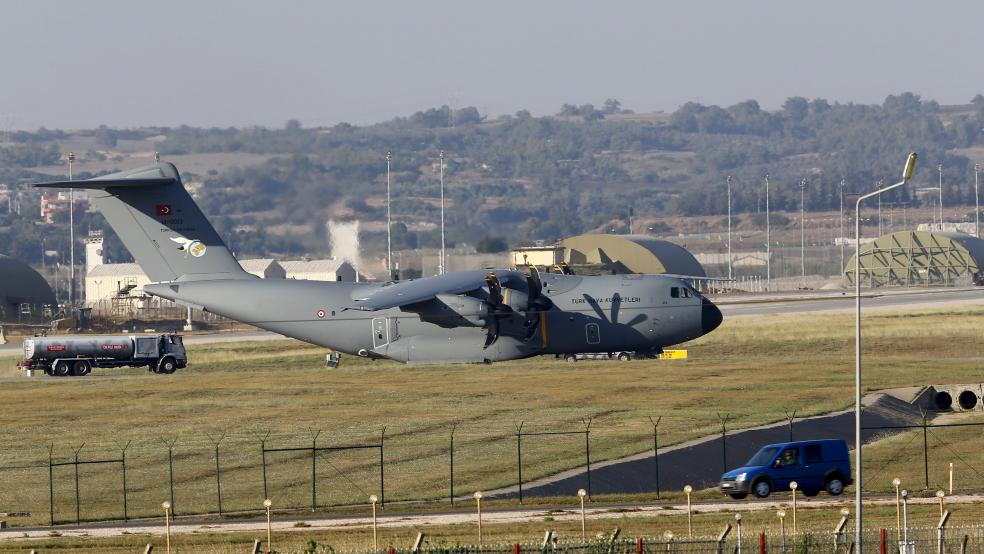The shift comes as Ankara, long a reluctant partner in the U.S.-led fight against Islamic State, launched air strikes against the militants in Syria on Friday for the first time.
U.S. defense officials on Thursday said Turkey had agreed to let it launch manned air strikes from an air base at Incirlik, close to the Syrian border, something Washington has repeatedly lobbied for. The United States had been limited to flying unarmed drones from Incirlik.But Turkey's Foreign Ministry went further on Friday, saying it had approved coalition strikes to be launched from its air bases. That would include air fields such as the one in Diyarbakir, southeast Turkey, from where it dispatched the F-16 fighters for the attack in Syria."The cabinet of ministers has given approval for the stationing in our country's bases of manned and unmanned aircraft of the U.S. and other coalition countries ... taking part in air operations against Islamic State," it said, adding that Turkey's own aircraft would also be deployed.U.S. State Department spokesman Mark Toner said the agreement with Turkey was part of an "ongoing dialogue that we've had for many, many months now on how to address ISIL in the region and defeat and dismantle it," using an acronym sometimes used for the militant group.He said the agreement would "deepen cooperation" on things such as the program to train and equip Syrian rebels, intelligence sharing and operational coordination."As part of that, I can say that Turkey has granted clearance for the deployment of manned and unmanned aircraft from the U.S. and other coalition members participating in air operations against ISIL, and ... that includes Incirlik air base," Toner said.The Turkish Foreign Ministry said it expected cooperation among the air forces to increase the security of those living in Islamic State-controlled areas of Syria, although it did not make any reference to the creation of a "no-fly zone", something that has been a source of speculation in local media.U.S. officials have resisted imposing a no-fly zone to increase security inside Syria near the Turkish border, saying the step was not necessary. Air Force Colonel Patrick Ryder, a spokesman for U.S. Central Command, said on Friday there had been "no change in that position."Asked if the deal would lead to a no-fly zone, Toner noted the issue had been a "point of discussion for some time" but U.S. officials were concerned about the "logistical challenges that would be inherent in a buffer zone.""We continue to have discussions with Turkey, evaluate options for the ... best way to counter ISIL along the border," Toner said. "We obviously take threats to Turkey's border seriously. They are a NATO ally."Thirty-two people, many of them Kurds, were killed in the suspected Islamic State suicide bombing in the Turkish town of Suruc on the Syrian border this week. (Reporting by Tulay Karadeniz and Daren Butler; Writing by David Dolan; Editing by Alison Williams and James Dalgleish)Turkey approves U.S.-led coalition's use of air bases against Islamic State

MURAD SEZER



